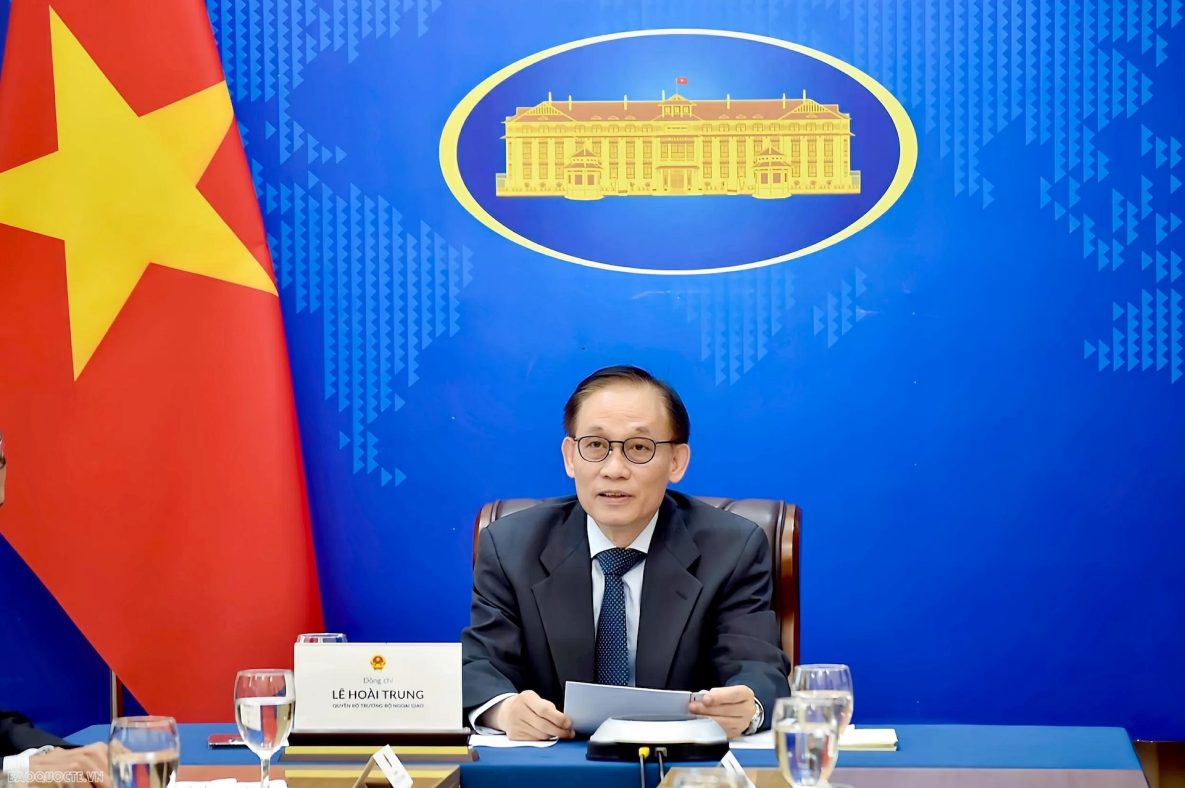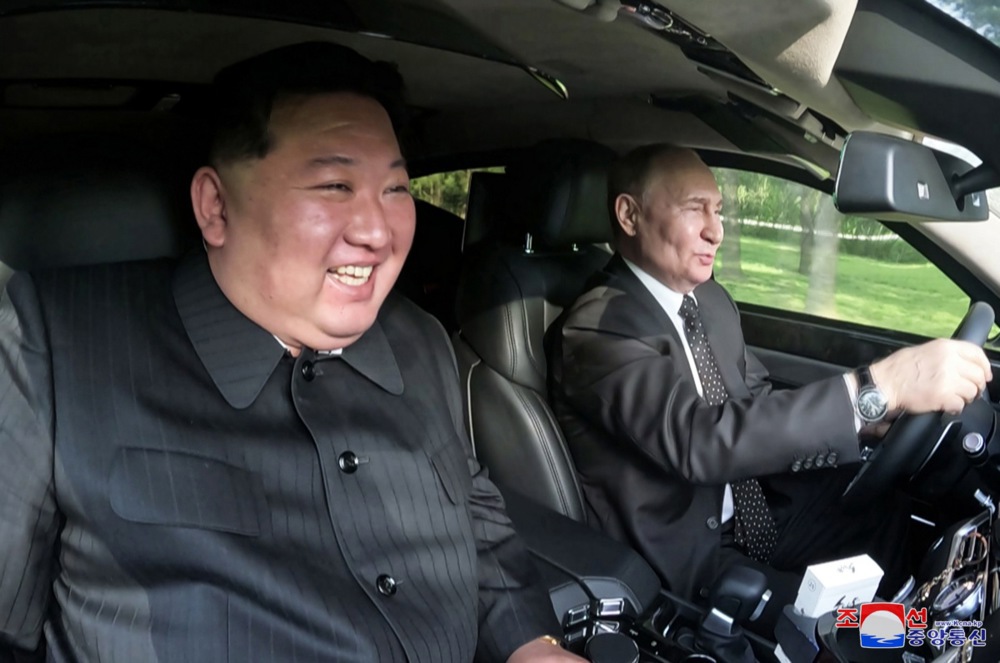EU-Vietnam relations need speed and trust to reach next level, says MEP Lange
As Vietnam rises as a regional powerhouse, MEP Bernd Lange (S&D) calls on the EU to match its pace and build a true partnership of equals

With its rapid growth, digital ambition, and expanding global reach, Vietnam is emerging as one of Asia’s most dynamic economies – an increasingly attractive partner for the European Union, both economically and geopolitically.
In this exclusive interview with Euractiv, MEP Bernd Lange, Chairman of the Committee on International Trade, discusses how the EU can match that momentum – from accelerating the implementation of the EU-Vietnam Free Trade Agreement (EVFTA) and deepening cooperation on renewables, to fostering fair competition, innovation, and stronger education links between Europe and Vietnam.
EURACTIV: The EVFTA has already driven strong growth in bilateral trade. What are the priority areas to improve its implementation – particularly in sustainability standards, digital trade, or services?
BL: We need to talk to Vietnam again about standards and compliance with standards. This applies to agricultural products, to SPS measures, but also, for example, to the recognition and implementation of standards for motor vehicles, such as those from the United Nations Economic Commission for Europe (UNECE).
We need to accelerate the implementation of the EVFTA overall. Approval procedures on both sides should not take so long; investment activities in the field of renewable energy, for example, must also be rolled out swiftly.
EURACTIV: Vietnam is emphasising developing a dynamic private sector. How can EU trade and investment frameworks better support Vietnamese undertakings integrating into European and global value chains?
BL: Vietnam is making great efforts to improve the necessary infrastructure. The aim is to strengthen demand and thus enable investment in the private sector. But, of course, it is also about creating export opportunities for the private sector. For example, the expansion of the port of Haiphong is an important step. However, there is still a great need for progress in the area of infrastructure.
A second point is the workforce. The qualification system in Vietnam is already producing many skilled workers. However, a functioning private sector also requires sound labour relations, and further reforms of Vietnamese labour law seem necessary. And there is certainly still some unfair competition between state-owned and private companies from time to time that needs to be addressed.
EURACTIV: With Vietnam accelerating its digital and green transitions, where do you see the greatest untapped potential for EU-Vietnam cooperation in these areas – beyond what is already outlined in the EVFTA?
BL: Vietnam has great potential for generating energy from renewable sources such as hydropower, wind energy, and solar power, which needs to be exploited. So far, these opportunities have been hindered by unclear and lengthy approval procedures, some of which are also handled at the regional level. In order to make use of this potential, these obstacles need to be removed.
EURACTIV: Looking towards the potential upgrade to a Comprehensive Strategic Partnership, what would you define as the ‘next-level’ goals or benchmarks for EU-Vietnam relations?
BL: I would like to see us create a faster information system between Vietnam and the EU. Beyond the meetings provided for in the agreement, there is a need for rapid and comprehensive information on current developments. This will further build trust and enable solutions to be developed quickly. And, of course, we need improved investment conditions that take effect quickly. I don’t necessarily want to link this to the ratification of the investment agreement, as the Member States are, unfortunately, taking a long time with this, as usual.
EURACTIV: As Vietnam moves towards becoming a high-income country by 2045, how do you see the EU’s role evolving – from development assistance to a more innovation-driven, high-tech partnership?
BL: There is no question that Vietnam is an incredibly dynamic country, and there is no doubt that the development aspect will become less important. We are already seeing great potential for innovation in industrial production.
A very interesting start-up scene is developing, which is a further driver of innovation. Of course, it is also a matter of supporting market access conditions there. The EU and Vietnam could work on this as partners on an equal footing, as the EU also has room for improvement in this area.
EURACTIV: Vietnam is emerging as a strong regional voice within ASEAN. How can the EU work with Vietnam to shape broader EU-ASEAN cooperation, especially in areas like supply chain resilience, digital governance, and climate finance?
BL: As the old ASEAN + 3 (South Korea, Japan, China) is no longer functioning effectively, other powers in the region are emerging. Vietnam is one of them, but Indonesia and Malaysia also play crucial roles in the community. However, the ASEAN community is very heterogeneous – economically, historically, and in terms of priorities.
Therefore, in the medium term, it is certainly not possible to conclude a comprehensive region-to-region trade agreement with the EU.
Nevertheless, the EVFTA sets a good example of successful cooperation with the EU, and we are working on strengthening our ties with other ASEAN members, such as Thailand, which could ultimately lead to more region-to-region cooperation.
EURACTIV: People-to-people ties and education cooperation are vibrant pillars of the partnership. In your view, how can the EU further support Vietnam’s ambition to build a high-quality, innovation-driven workforce?
BL: Models such as dual vocational training are being received with great interest in Vietnam. Further exchange in the education sector can also help to generate greater potential in higher education and in the field of digital applications.
Of course, there are also many historical ties between the people of Vietnam and the EU. It is important to build on these ties. We also see that in many areas, skilled workers from Vietnam are a great support to our companies, and when they return home, they take back their new qualifications.
(BM)









